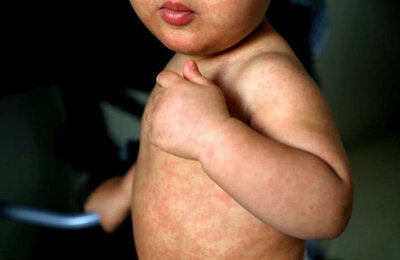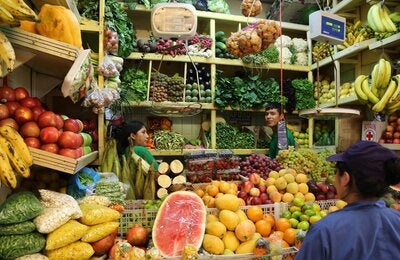
Bridgetown, Barbados, 5 June 2020 (PAHO/WHO) - 7 June 2020 marks the second annual celebration of World Food Safety Day - (WFSD) and the occasion was observed by hosting of a virtual press conference on 5 June 2020. World Food Safety Day is commemorated to draw attention and inspire action to help prevent, detect and manage foodborne hazards and improve food security.
The joint press conference was held in Bridgetown, Barbados, by the Pan American Health Organization/World Health Organization (PAHO/WHO) and the Food and Agriculture Organization (FAO) of the United Nations. The Director of the Pan American Center for Foot-and-Mouth Disease and Veterinary Public Health (PANAFTOSA), Dr. Ottorino Cosivi, told regional media “we celebrate World Food Safety Day to remind us that Food Safety is everyone’s business.”
Dr. Cosivi explained that “PANAFTOSA, in close coordination with other international organizations such as FAO, OIE, IICA, OIRSA, is working with both the Ministry of Health and Ministries of Agriculture, particularly their Veterinary Services and other key partners in strengthening food safety programmes.”
Sub-regional coordinator of the FAO, Dr. Renata Clark, lamented there are “600 million sick annually and 420,000 deaths annually - and this is only a partial count as data on food borne illness are weak and the impact of only a few of the most common disease agents were considered.”
Dr. Clarke called for assurances that people involved in the production of food “are following good food hygiene practices” and challenged governments to provide “appropriate oversight to guide the definition of those ‘good practices’, to facilitate compliance and to enforce as necessary.”
Dr. Yitades Gebre, PAHO/WHO Representative for Barbados and the Eastern Caribbean Countries, spoke to the issue of food safety in the context of COVID-19. Dr. Gebre stated emphatically: “Presently, there is no evidence that the virus responsible for the current COVID-19 pandemic is carried by domestic food-producing animals, such as chickens, ducks, other poultry, pigs, cattle, camels, horses, sheep, goats, rabbits, guinea pigs or fish.”
The PAHO/WHO Representative reminded that “proper cleaning and the prevention of cross-contamination are critical in the control of foodborne illnesses.” He said that “The application of sound principles of environmental sanitation, personal hygiene and established food safety practices will reduce the likelihood that harmful pathogens will threaten the safety of the food supply, regardless of whether the food is sourced from intensive agriculture.”



